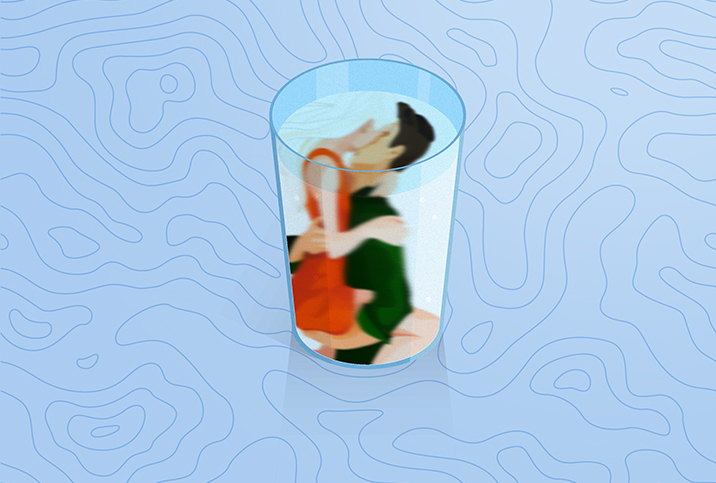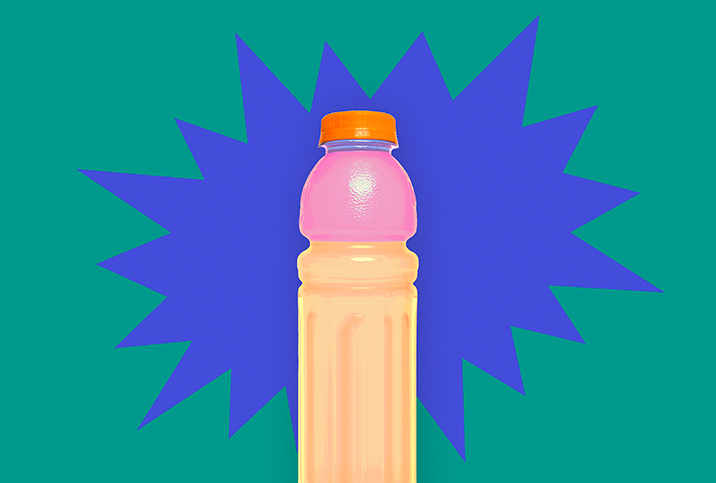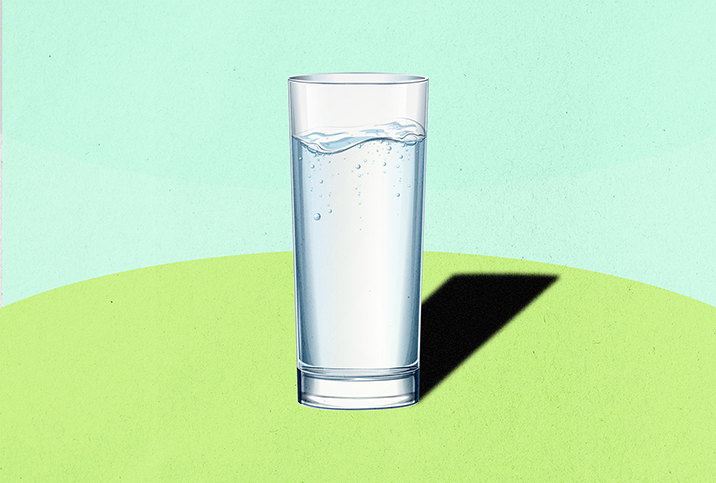Celebrate Your Sexual Performance…With a Glass of Water

Dehydration can take a few tolls on your body, some that are full-body symptoms and others that relate specifically to sex. Susan Milstein, Ph.D., a sexual health educator in New York City, explained that the most apparent signs of dehydration reduce the odds of anyone having sex.
"When a person is dehydrated, they're often fatigued and irritable," Milstein said. "This can make a person less likely to want to have sex. Dehydration can also cause headaches, which can make it harder to get turned on."
Dehydration and sexual function
Dehydration makes erectile dysfunction (ED) more likely because the penis doesn't receive sufficient oxygen and nutrients from the bloodstream, according to Urology of Greater Atlanta.
"For men, dehydration can make it more difficult to get an erection because there's a decrease in blood volume," Milstein said. "Women may experience vaginal dryness because of dehydration [and their] pH balance can change. When this happens, it's possible that she can develop a yeast infection. It's important to note that both difficulties getting an erection and vaginal dryness can be caused by things other than dehydration."
Dehydrated semen may appear thicker or chunkier, but that's assuming you achieve an orgasm. As Los Angeles-based sex therapist Karen Stewart, Psy.D., described, dehydration makes that goal all the more elusive.
"Dehydration can affect cervical mucus and reduce a woman's libido and lubrication during sex," Stewart said. "When a woman has reduced natural lubrication, she can then experience difficulty with sexual activity, such as painful intercourse, difficulty [reaching] orgasm or overall distractibility."
Dehydrated cervical mucus may have less elasticity than what a person typically sees. Only intimate knowledge of your body can monitor that specific change.
Knowing what to look for
You can tell if you're dehydrated without going to the trouble of getting undressed. The skin turgor test requires no equipment and almost no medical training.
To perform the test, take two fingers and grasp the skin on the lower arm or abdomen and then release the pinch. While skin turgor decreases with age, the skin should snap back into its original placement in two seconds or less. If the skin doesn't return but instead "tents" for more than two seconds, this may represent a late-stage sign of dehydration.
Milstein shared hydration guidance, both in specifics and through broader strokes.
"For optimal health, the recommendation from the U.S. National Academies of Sciences, Engineering and Medicine is for men to take in 3.7 liters of fluid a day and women 2.7 liters," Milstein said. "While coffee has water, it also has caffeine, which can act like a diuretic. The general consensus these days is that you can count coffee toward your water intake for the day [but] this shouldn't be your only source of water. If you feel thirsty, you may already be slightly dehydrated."
Does coffee count?
The issue of whether coffee does more to dehydrate than hydrate is a hotly disputed issue going back at least a century. On one hand, coffee obviously contains caffeine, and caffeine is thought to be a mild diuretic, meaning large quantities make you pee. However, the main study backing the findings that coffee acts more as a diuretic than to hydrate was conducted in 1928, measuring how much people urinated after drinking coffee or tea.
There were a few questions about the efficacy of the findings, though. For one, the study observed only three participants, which could be argued, then and now, was not a fair cross-section of the population.
A far more relevant and recent study in 2016 envisioned a beverage hydration index (BHI), or a scale measuring the short-term impacts of several alcoholic and nonalcoholic beverages on urine output versus liquid retained. Going by the BHI, coffee is still an inferior form of hydration to ingesting water.
The key has always been moderation. Doctors recommend that in amounts of less than 300 to 400 milligrams (mg) of caffeine, coffee can serve to hydrate. For reference, each cup of coffee has about 95 mg of caffeine and a shot of espresso has 65 mg.
The point is, though, not all beverages are created equal.
Optimize your hydration
Stewart outlined a few ways to structure your day and workspace in order to optimize hydration.
"To increase your water intake, have a large bottle of water next to the bed and start getting your ounces in before you even put your feet on the ground," she explained. "Sporadically drink water throughout the day; give yourself a goal and try to increase by a few ounces per week. If someone is chronically dehydrated or does not drink a lot of water regularly, it is not recommended to immediately start drinking large amounts of water as this can cause discomfort in the body."
While dehydration's effects can ease up within five minutes of drinking water, severe cases may take as long as two to three days to resolve through proper treatment. Stewart suggested that anything you'd do for yourself after a gym trip is probably a good course of postcoital action.
"Sex is often a vigorous physical activity where someone might feel exhaustion or dehydration," Stewart said. "Have a large glass of water with your partner, enjoy relaxing and rehydrate yourself as you would after any physical activity."
Offering your lover a glass of water isn't just good manners, it's vital aftercare for both of you.


















